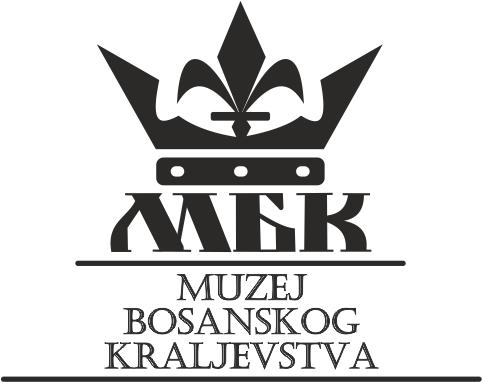Vladislav Pavlović (14th century – after March 14, 1357) is the younger son of Prince Pavle Hrvatinić and brother of Prince Grgur Pavlović. He appears in historical sources only once, when in 1357, together with his brother Prince Grgur, he left Ban Tvrtko and recognized the Hungarian king Ludovic I of Anjou as his supreme senior, ceding the town of Greben to him in exchange for the possession of Dobra Kuća in Slavonia. On that occasion, on March 14, 1357, the Hungarian king issued a charter to the Pavlović brothers, where they were addressed as “Noblemen of Grebena”, by which he exempted them from Bosnian rule and placed them under his control. From Ban Tvrtko’s perspective, it was an act of treason for which it was worth “cutting off a noble man’s head” as required by the understandings and customs of the time. The fate of Prince Vladislav Pavlović after this “betrayal” is not known at all, since he is no longer mentioned in historical sources, unlike his brother Grgur, whose activities in Hungary can be traced for the next few years.
Prince Vladislav Pavlović, together with his brother Grgur, owned the Zemljanik county, which he inherited from his father, Prince Pavle Hrvatinić. In the charter of Ban Stjepan II Kotromanić, issued to the brothers Pavle and Vuk Vukoslavić in 1351, it was stated, among other things, that there was a demarcation between Pavlović and Vukoslavić, where the Pavlović family received the county of Zemljanik, which they had previously held. So, we are talking about a formal act that only confirmed the existing situation, which in turn indicates the process of disintegration of the noble kindred of Hrvatinić into smaller families.
Bibliography:
- Ančić, Mladen: Putanja klatna; Ugarsko-hrvatsko kraljevstvo i Bosna u XIV stoljeću, Zavod za povijesne znanosti HAZU u Zadru – Ziral, Zadar-Mostar, 1997.
- Ćirković, Sima: Istorija srednjovekovne bosanske države, SKZ, Beograd, 1964.
- Ćirković, Sima: “’Verna služba’ i ‘vjera gospodska’. Veze lične zavisnosti u bosanskoj državi” in: Rabotnici, vojnici, duhovnici; Društva srednjovekovnog Balkana, Equilibrium, Beograd, 1997, 318-335.
- Ćošković, Pejo: “Hrvatinići (Horvatići, Stipančić Hrvatinić, Stipanići, Stjepanići), (velikaški rod)” in: Hrvatski biografski leksikon, V (Gn-H), Leksikografski zavod Miroslav Krleža, Zagreb, 2002, 725-739.
- Engel, Pál: “Neki problemi bosansko-ugarskih odnosa”, Zbornik odsjeka za povijesne i društvene znanosti HAZU 16, Zagreb, 1998, 57-72.
- Mrgić-Radojčić, Jelena: “Povelja bana Stjepana II Kotromanića knezu Vuku i Pavlu Vukoslaviću”, Stari srpski arhiv 1, Laktaši, 2002, 79-92.
- Mrgić-Radojčić, Jelena: Donji Kraji. Krajina srednjovekovne Bosne, Filozofski fakultet u Beogradu-Filozofski fakultet u Banjaluci-Istorijski institut u Banjaluci, Beograd-Banja Luka, 2002.
- Smičiklas, Tadija: Codex diplomaticus regni Croatie, Dalmatiae et Slavoniae, XII, JAZU, Zagreb, 1914.
- Šišić, Ferdo: Vojvoda Hrvoje Vukčić Hrvatinić i njegovo doba, MH, Zagreb, 1902.
- Thallόczy, Ljudevit: “Istraživanje o postanku bosanske banovine sa naročitim obzirom na povelje kӧrmendskog arkiva”, Glasnik Zemaljskog muzeja 18, Sarajevo, 1906, 401-444.
- Thallóczy, Ludwig von: Studien zur geschichte Bosniens und Serbiens in mittelalter, Duncker&Humblot, München-Leipzig, 1914.
- Wenzel, Gusztáv: Magyar Diplomacziai Emlékek az Anjou Korbòl (Acta extera), II, Magyar Tudományos Akadémia, 1875.
